
Below are links to authentic examples of EE exemplars. See the links below.
For supervisors: you can also find EEs from previous students in our HS365 drive. Ask the DP or EE coordinator for more information.
The Extended Essay is externally assessed.
There are 30 marks available in total.
Examiners grade your work by looking for the strengths in what you’ve written, instead of focusing on what you might have missed. They try to find the level that best matches your overall work, even if some parts fit different levels. You don’t have to meet every requirement in a level to get a mark there. Getting the highest mark doesn’t mean your work is perfect.
Criteria A, B, C, and D are used to grade your whole extended essay. Criterion E is only used to grade your reflective statement on your Research Planning Form (RPF).
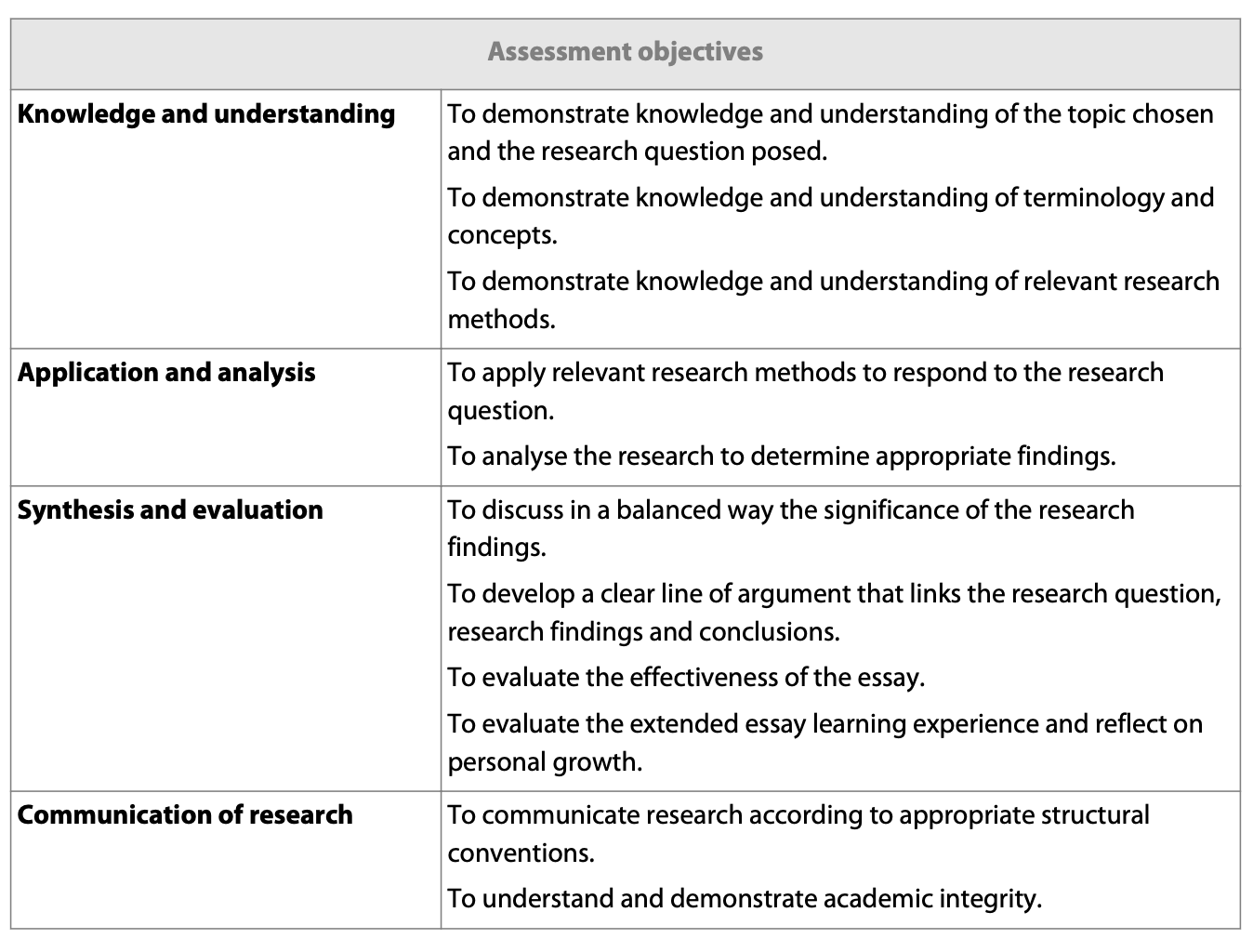
Source: EE Guide p. 17
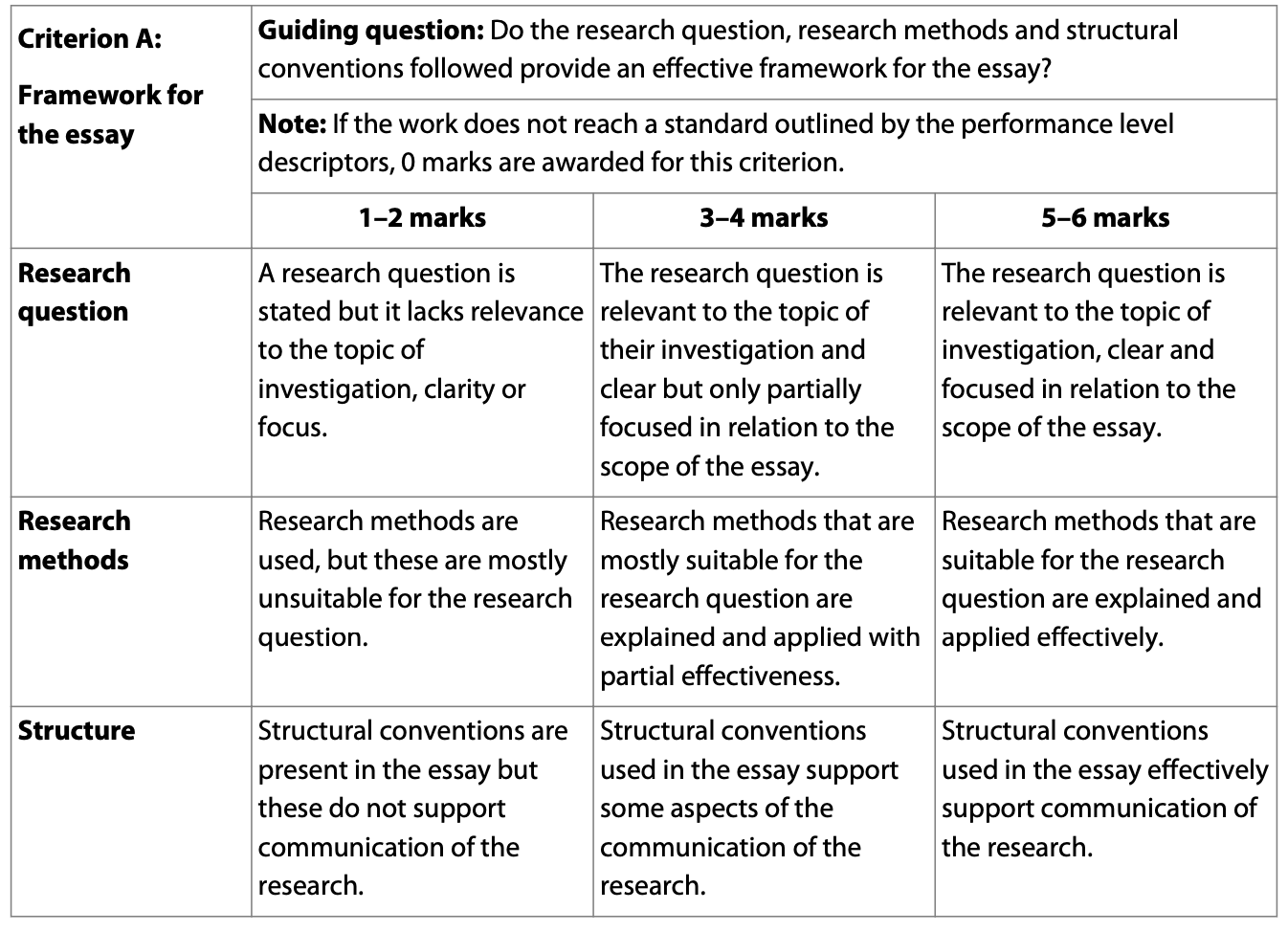
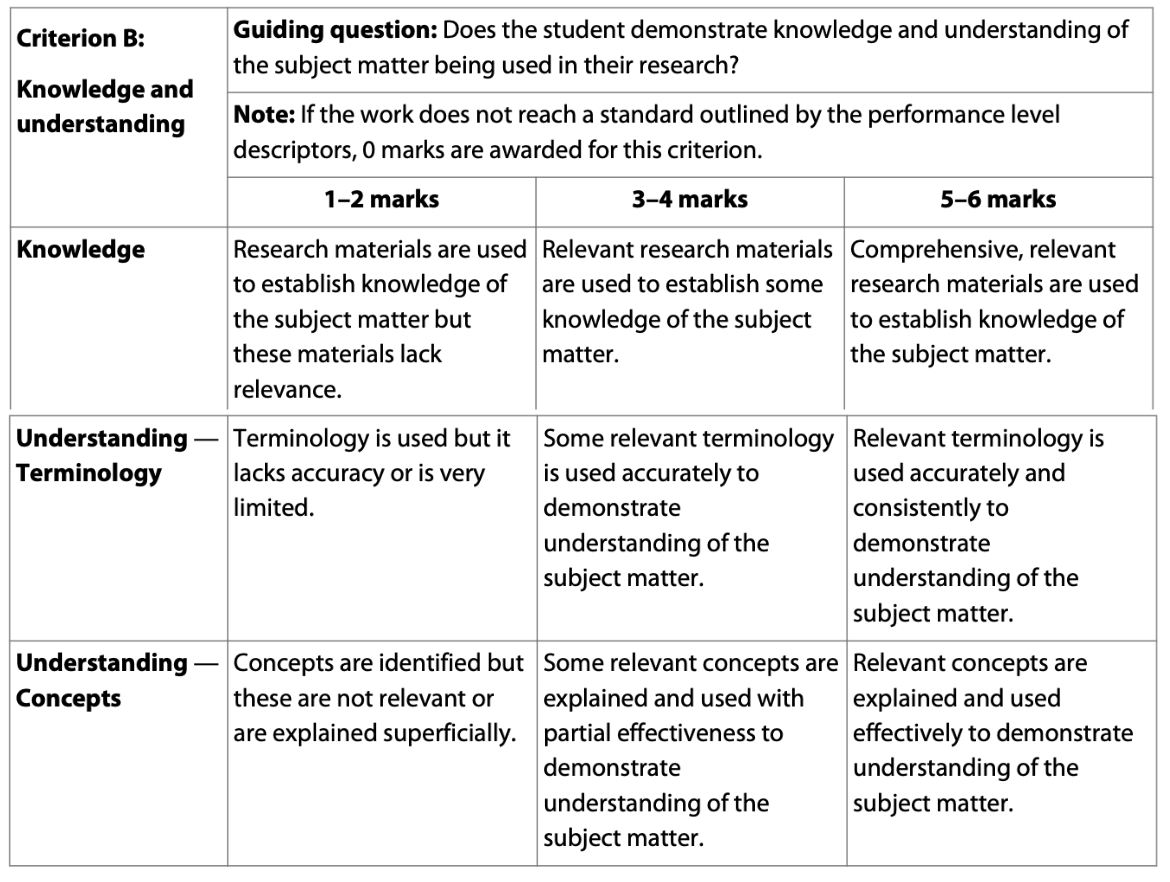
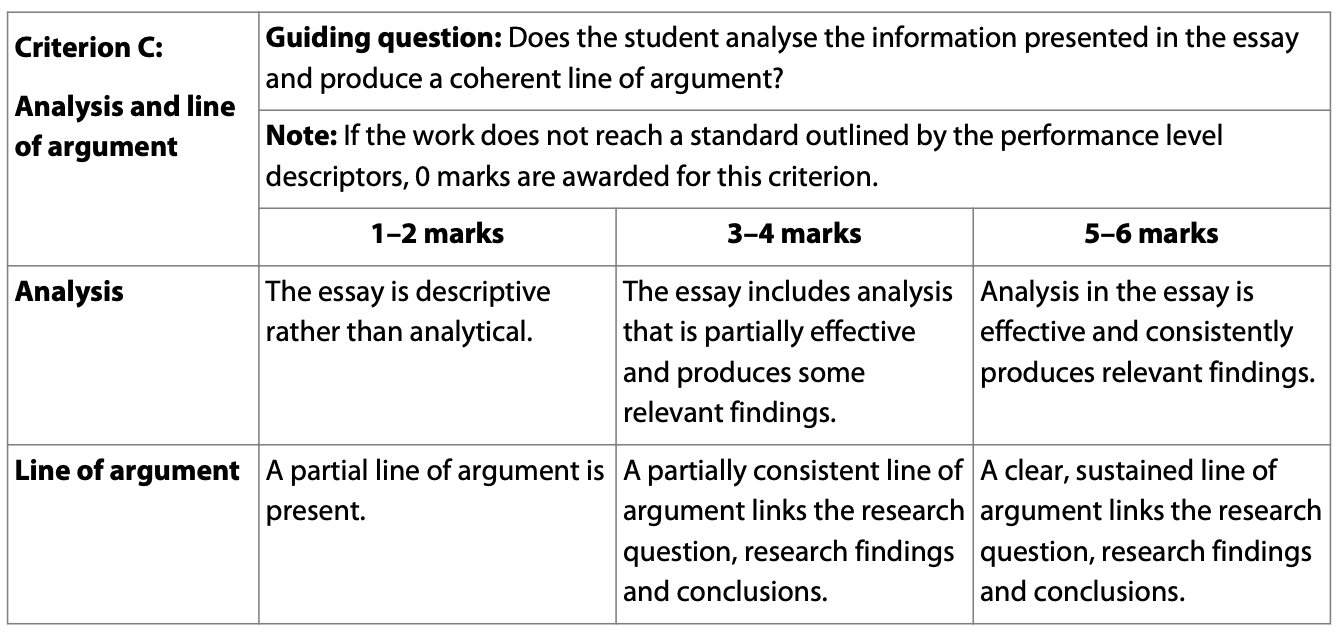
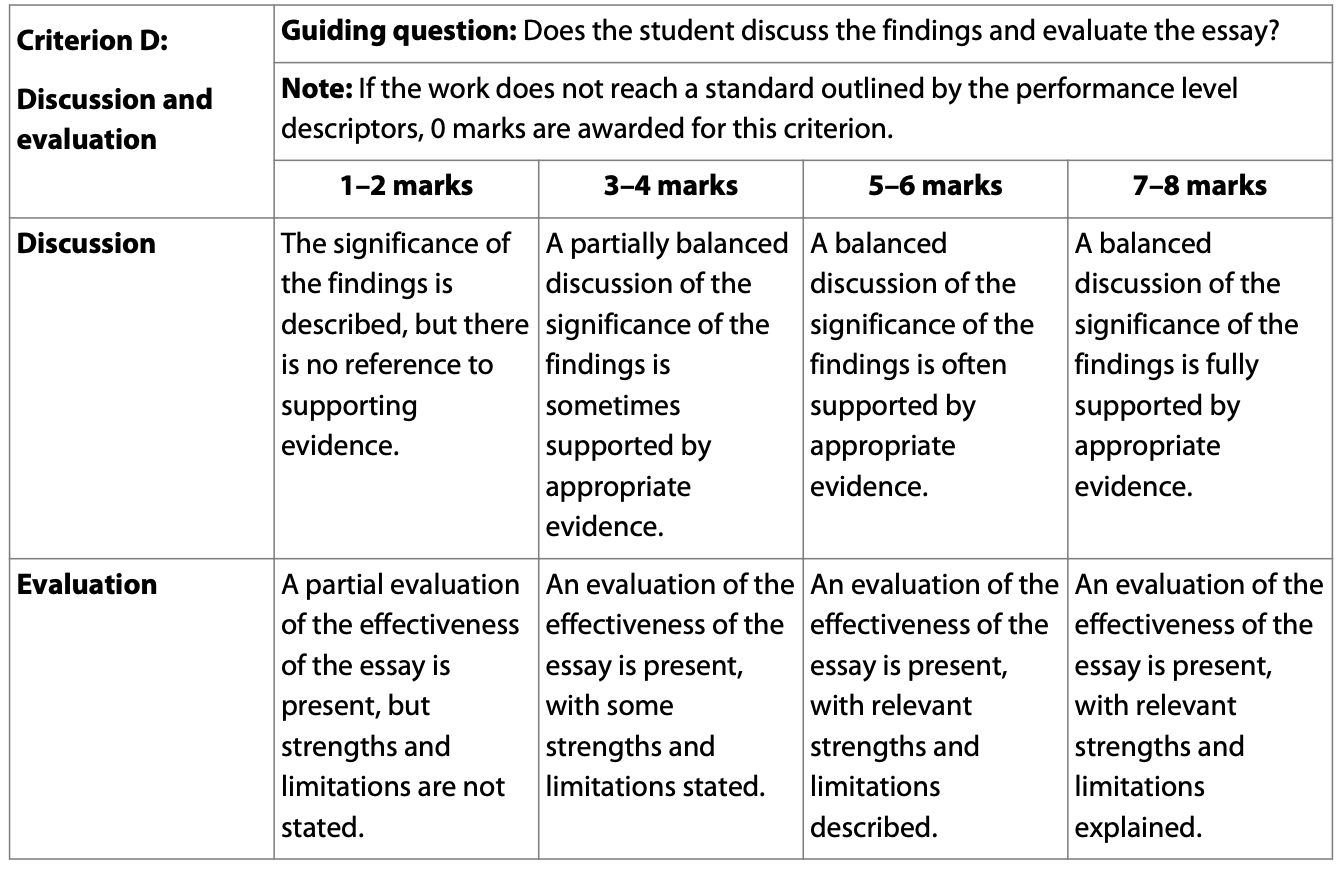
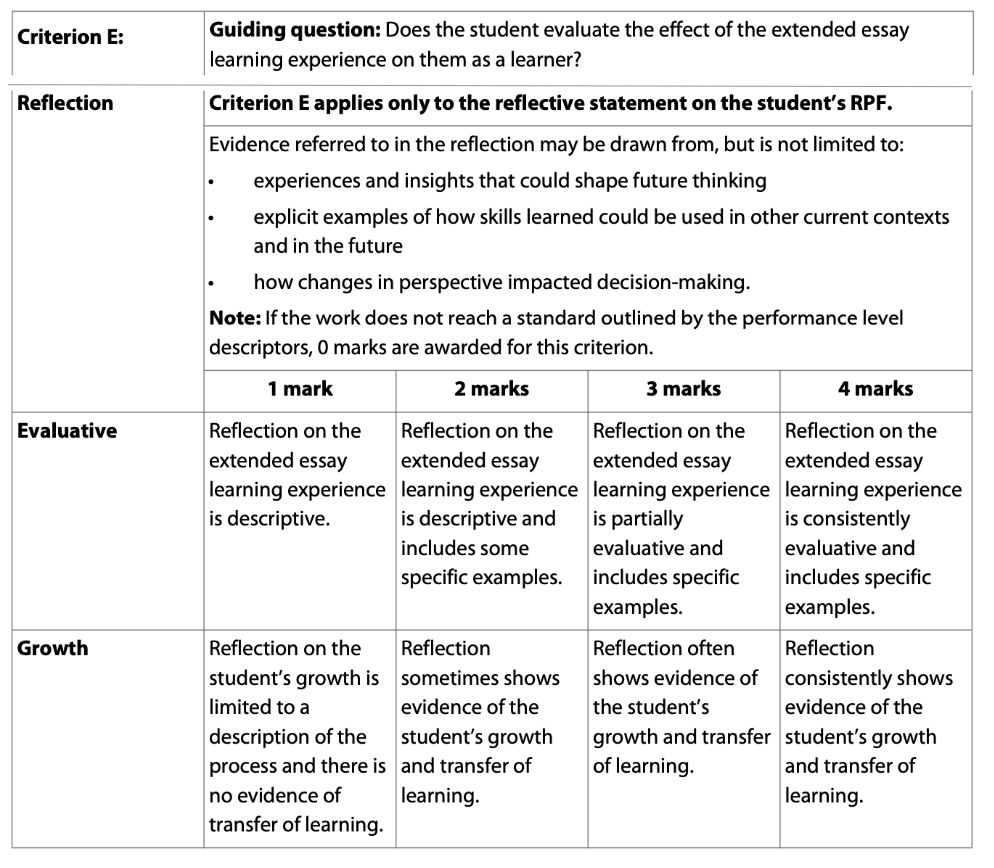
Source: EE Guide p. 112-114
Grade A
• The student demonstrates effective research skills, resulting in a well-focused and appropriate research question that can be explored within the scope of the chosen topic.
• There is effective engagement with relevant research areas, methods and sources.
• There is excellent knowledge and understanding of the topic in the wider context of the relevant discipline.
• There is effective application of source material and correct use of subject-specific terminology and/or concepts that further supports this.
• Conclusions are consistent, relevant and proficiently analysed.
• Arguments show sustained reason and are supported effectively by evidence.
• Research is critically evaluated.
• Coherence, consistency and effective use of structural conventions support readability to an excellent degree.
• Reflection on the extended essay learning experience is consistently evaluative and includes specific examples.
• Reflection shows consistent evidence of the student’s growth and transfer of learning.
Grade B
• The student demonstrates appropriate research skills, resulting in a research question that can be explored within the scope of the chosen topic.
• There is reasonably effective engagement with relevant research areas, methods and sources.
• There is good knowledge and understanding of the topic in the wider context of the relevant discipline.
• There is a reasonably effective application of source material and reasonable use of subject-specific terminology and/or concepts.
• Conclusions are consistent and accurately analysed.
• Arguments show reason and are often supported by evidence.
• Research at times shows critical evaluation.
• Coherence, consistency and use of structural conventions support readability to a good degree.
• Reflection on the extended essay learning experience is partially evaluative and includes specific examples.
• Reflection often shows evidence of the student’s growth and transfer of learning.
Grade C
• The student demonstrates evidence of research undertaken, leading to a research question that is not necessarily expressed in a way that can be explored within the scope of the chosen topic.
• There is partially effective engagement with mostly appropriate research areas, methods and sources. However, there are some discrepancies in those processes, although these do not interfere with the planning and approach.
• There is some knowledge and understanding of the topic in the wider context of the discipline, and the knowledge is mostly relevant.
• There is an attempted application of source material and appropriate terminology and/or concepts; an attempted synthesis of research results with partially relevant analysis.
• Conclusions are partly supported by the evidence.
• Arguments are descriptive rather than analytical.
• There is a partially successful evaluation of the research.
• The essay is not always coherent and consistent, and structural conventions are irregularly applied, but this does not significantly hinder readability.
• Reflection on the extended essay learning experience is descriptive and includes some specific examples.
• Reflection sometimes shows evidence of the student’s growth and transfer of learning.
Grade D
• The student demonstrates a lack of research, resulting in unsatisfactory focus and a research question that is not answerable within the scope of the chosen topic.
• At times, there is engagement with appropriate research, methods and sources, but discrepancies in those processes occasionally interfere with the planning and approach.
• There is some relevant knowledge and understanding of the topic in the wider context of the discipline but at times the knowledge is irrelevant.
• There is an attempted application of source material but with inaccuracies in the use of, or underuse of, terminology and/or concepts.
• There is irrelevant analysis and inconsistent conclusions as a result of a descriptive discussion.
• There is a lack of evaluation.
• The limited coherence and consistency of the essay and absence of structural conventions hinders readability.
• Reflection on the extended essay learning experience is descriptive.
• Reflection on the student’s growth is limited to a description of the process and there is no evidence of transfer of learning.
Grade E (a failing condition)
• The student demonstrates little or no research, a lack of focus and an ineffective research question.
• There is a generally unsystematic approach and a resulting unfocused research question.
• There is limited engagement with limited research and sources.
• There is generally limited and only partially accurate knowledge and understanding of the topic in the wider context of the discipline.
• There are ineffective connections in the application of source material, and inaccuracies in the terminology and/or concepts used.
• The results of research are summarized with inconsistent analysis.
• There is an attempted outline of an argument but one that is generally descriptive in nature.
• The lack of coherence and consistency and absence of structural conventions significantly hinders readability.
• Reflection on the extended essay learning experience is very limited, with no evidence of transfer of learning.
Source: EE Guide p.115-117
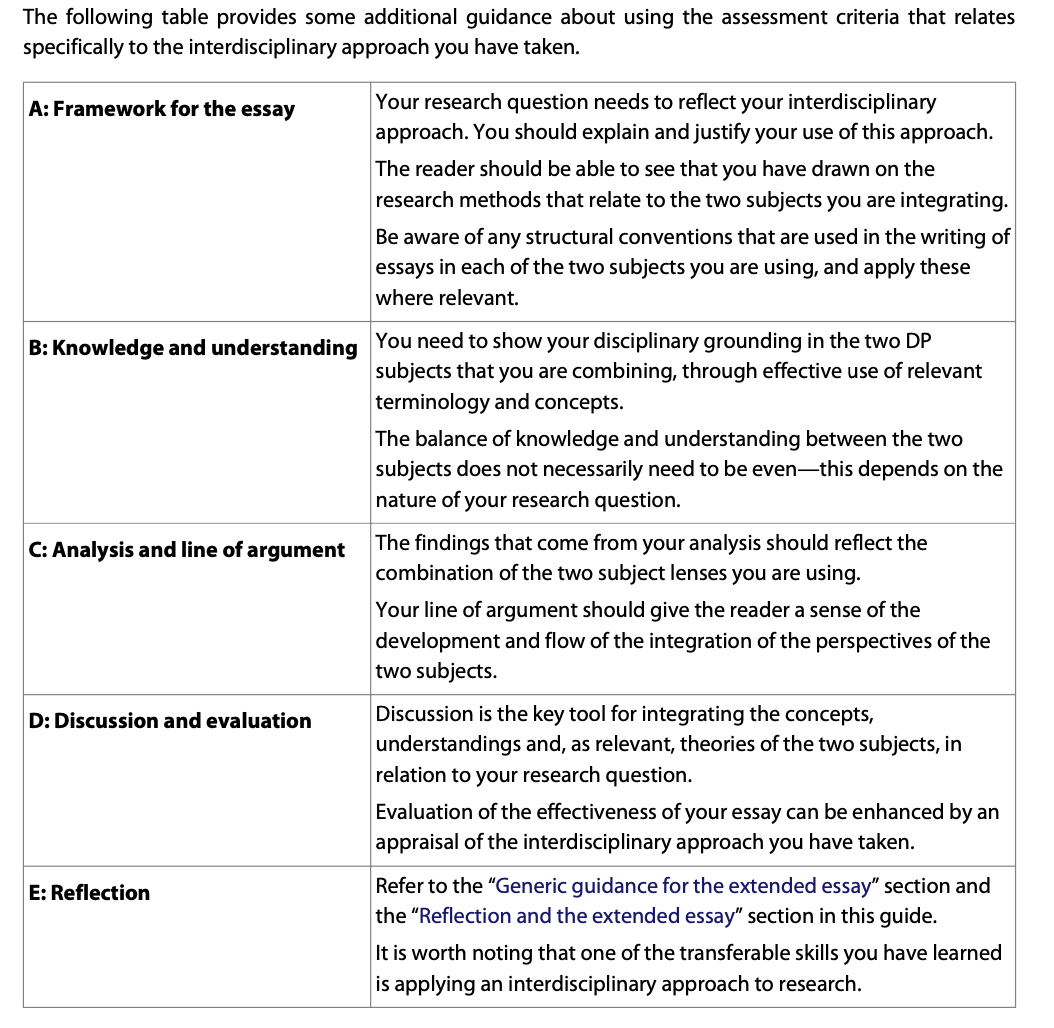
Source: EE Guide p. 33